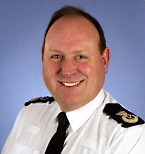A leading Scottish police official has inserted himself into the ongoing debate over drug policy in Scotland by saying that law enforcement alone is not working and that drug courts and even the prescribing of Class A drugs to users should be considered. John Vine, Chief Constable of Tayside Police made the remarks in a Monday interview with BBC Scotland.

"I would like to see, for example, drugs courts being set up in the area and would also like to see possibly some debate about whether prescribing Class A drugs might be something the health authorities might consider."
Ecstasy, LSD, heroin, cocaine, crack cocaine, magic mushrooms, and injectable amphetamines are all considered Class A (most serious) drugs under the United Kingdom's drug classification scheme. But it is likely Vine is talking about heroin, and possibly cocaine and amphetamines, the illicit drugs that are associated with the greatest social problems in Scotland.
Heroin seizures had tripled in Tayside in recent years, Vine said. While his police force can continue to produce good arrest figures, he added, it is time for a dialogue between law enforcement, health authorities, and politicians to come up with a long-term solution. That may not be a popular notion, he said, but he would be willing to experiment in Tayside.
"There are people who will have a view as to whether this would be socially acceptable or whether this would have any chance of working," Vine told BBC Scotland. "I would like this force and this police area to be a pilot area for any initiative which might be regarded as innovative or risky which could be evaluated by experts to see whether we can reduce demand for acquisitive crime."
Perhaps the Scottish new prime minister of Britain will lend Chief Vine an ear.
This work by StoptheDrugWar.org is licensed under Creative Commons Attribution-ShareAlike 4.0 International
Add new comment